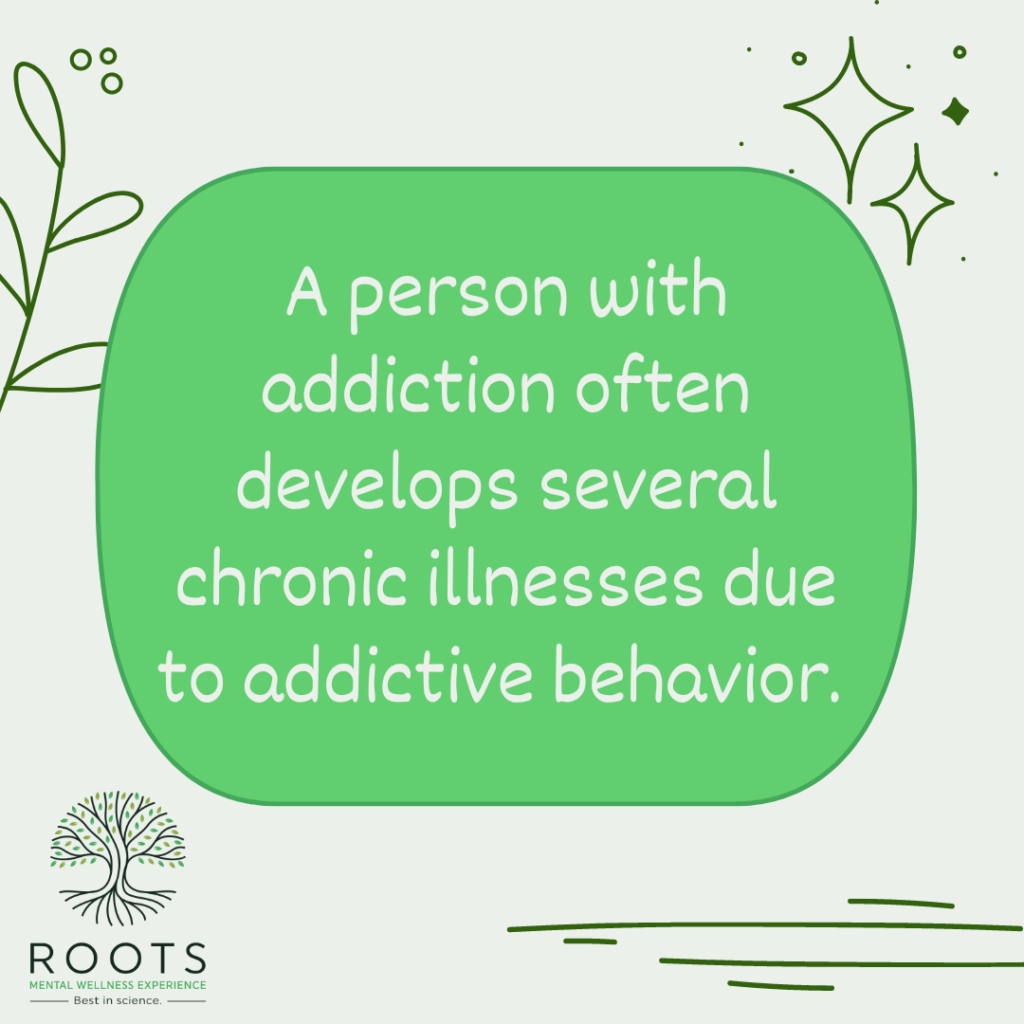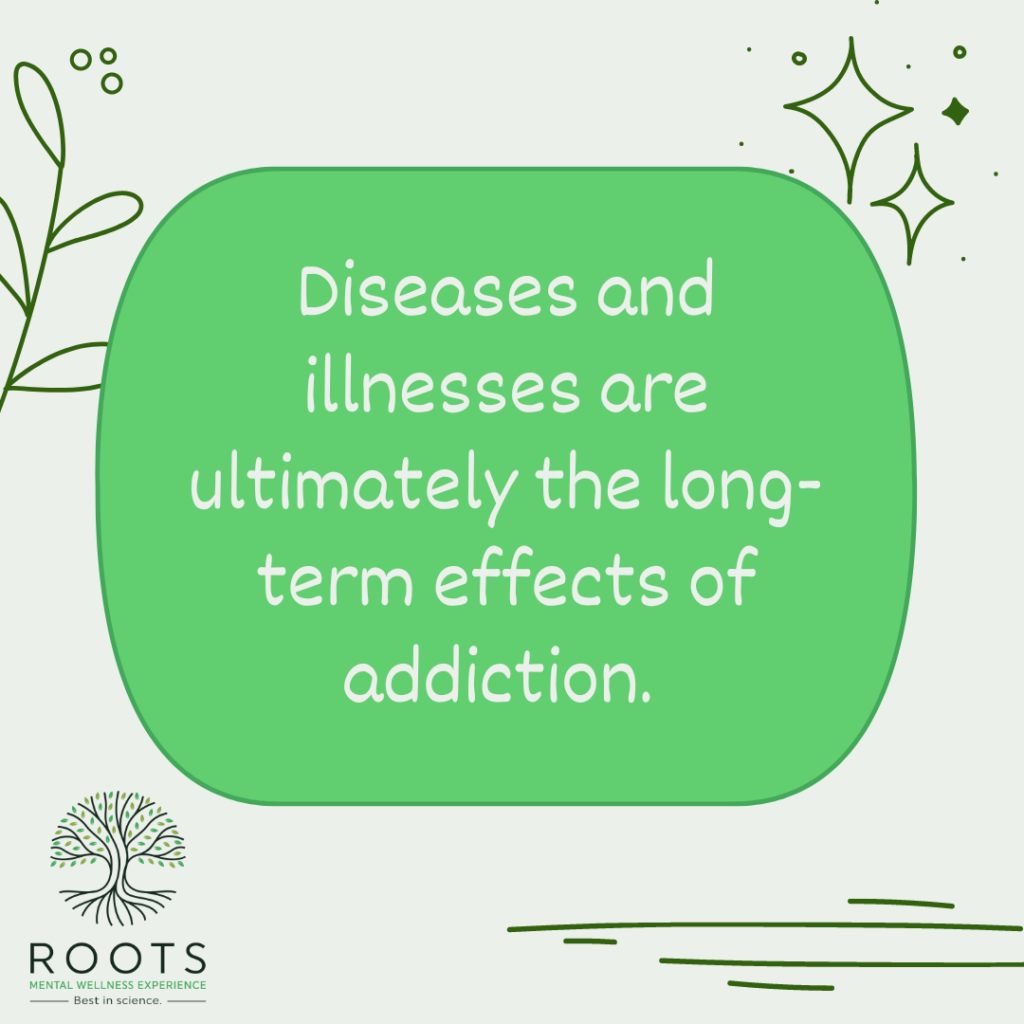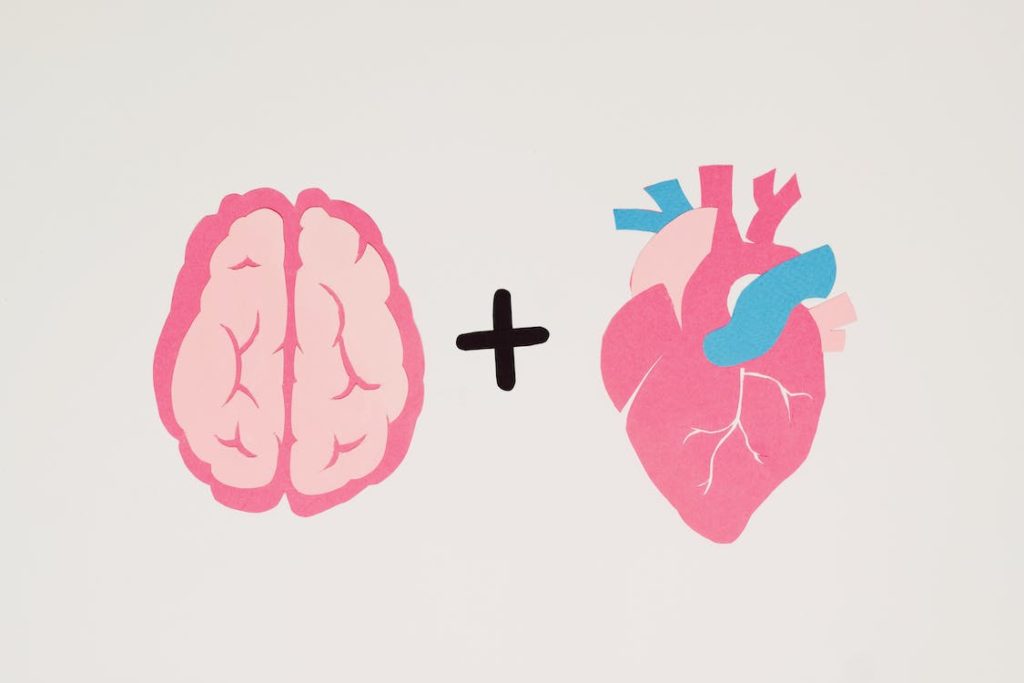Addiction and health have an inverse relationship. As you become more addicted to a substance, your health and wellness gradually decline. It’s impossible to be healthy while being addicted to drugs and alcohol. Abusive substances will always pull you pg slot until you develop chronic illnesses that can be irreversible. Unfortunately, people don’t understand or pay attention to this until it’s too late.
That’s why the best way to attain a healthy lifestyle is to completely abstain and never again touch the substance you’ve been addicted to for so long.
In this article, you’ll learn how addiction affects a person’s health. It emphasizes how getting diseases caused by addiction can lead to lifelong maintenance of medications and certain limitations. You’ll also learn the risk factors of addiction that contribute to a person’s development of physical illnesses and some lifestyle diseases associated with addiction.

How Does Addiction Affect A Person’s Health?
Addiction destroys the body in many ways. A person with addiction often develops several chronic illnesses due to addictive behavior. These chronic illnesses include but are not limited to physical pain, lung diseases, liver diseases, cancer, and mental health diseases. For example, chain smokers are at a high risk of developing lung cancer in the long term. Alcoholics may develop liver diseases such as fatty liver disease due to the harmful effects of alcohol on the liver.
Drug addicts fond of injecting drugs using unsterilized needles may contract hepatitis infection. Moreover, sharing needles with other people can cause the spread of HIV, for which there is still no cure. If left untreated with antiretroviral drugs, HIV can progress to AIDS in opportunistic infections like tuberculosis.
Diseases caused by addiction can prevent you from living normally or, worse, result in premature death. Once you have these diseases, you’ll be taking expensive medications for life (e.g., maintenance drugs for hypertension or antiretroviral drugs for HIV). You’ll also have limitations on what you can eat or do because your health is already fragile.
What Are The 3 Main Risk Factors Of Addiction?
According to the addiction guide from the Addiction Policy Forum, there are three main risk factors of addiction: genetic, environmental, and individual. These three factors contribute to a person’s development of addiction. It’s possible that some or all risk factors contribute to the person’s addictive nature.

Genetic Risk
Genetics plays a role in addiction. Genetics is one of the risk factors for diseases like diabetes, hypertension, and cancer. It’s the same case for addiction. Research suggests that addiction may be hereditary, with a 50 percent occurrence rate. If you have a family member who is addicted to alcohol, drugs, or cigarettes, there’s a chance someone in the family may also get the same addiction.
Though addiction and genetics are still debatable, current research shows a relationship between the two. That’s why addiction should never be viewed strictly as a lack of willpower or poor self-esteem because genetics play a biological role in addiction and health.
Environmental Risk
The people around you or where you live might be a factor for addiction. In teenagers, the concept of peer pressure makes addiction prevalent. By saying no to addictive behaviors, teenagers may experience social neglect since they don’t participate in these activities. Saying yes means social acceptance, which boosts confidence and sociability but leads teenagers astray.
Moreover, people also develop an addiction when it is “normalized” in the family. If the people around you condone addiction, young children may consider these addictive traits correct due to a lack of proper guidance.
Individual Risk
Sometimes, personal struggles and obstacles lead to addiction. Even if there is no genetic history of addiction or environmental triggers, emotional triggers can be a significant causative factor. For example, losing a loved one can cause a person to turn to alcohol as a coping mechanism.
Moreover, someone experiencing relationship problems may use drugs to numb the emotions as a temporary escape. All of these eventually boil down to the person’s mental health condition. The person may have co-occurring mental health disorders like depression or anxiety.

What Are Lifestyle Diseases Caused By Substance Abuse?
Diseases and illnesses are ultimately the long-term effects of addiction. No kind of substance abuse yields positive health benefits. Anything consumed in excess is always harmful to the body.
As a substance abuse addict, here are some of the most prominent lifestyle diseases that you may get if you don’t turn your life around:
Cardiovascular Diseases
Drug addiction is one of the leading causes of cardiovascular diseases. Cocaine causes arrhythmia or irregular heartbeats, atherosclerosis, damaged blood vessels, shrinking arteries, and blood clots. Methamphetamine can cause coronary heart disease and heart attacks. All of these can be fatal in severe scenarios.
Stroke
Alcoholics are susceptible to stroke, but drug abusers are also not exempted from this. Your stroke chances are high if you’re an alcoholic and a cigarette smoker. Of all stroke patients, one-quarter of these patients are cigarette smokers, according to a study.

HIV and AIDS
Contracting HIV is common when sharing needles with HIV-positive individuals. Even if you argue that your friends don’t have HIV and sharing needles is fine, you may get other diseases like hepatitis or sepsis from bacteria in the bloodstream. It’s possible to get HIV from unprotected sex as a predicate for taking drugs.
Cancer
Most dangerous drugs have carcinogenic characteristics, and continued use may develop into cancer. Cigarette smoking is the number one risk factor for lung cancer, accounting for 80 to 90 percent of lung cancer deaths. Moreover, regular and heavy drinking causes liver damage until it develops into liver cancer.
Conclusion
Turning back on addiction will be the best decision you’ll make in your life. Rehabilitation facilities and addiction treatment centers like Roots Through Recovery provide holistic recovery techniques that use medically-proven methods to improve a patient’s quality of life.
If you’re worried about handling illnesses while in rehab, Roots Through Recovery offers specialized programs and therapies to help you get the professional care you need without compromising your other treatments. Call 562-379-9755 to get started.




